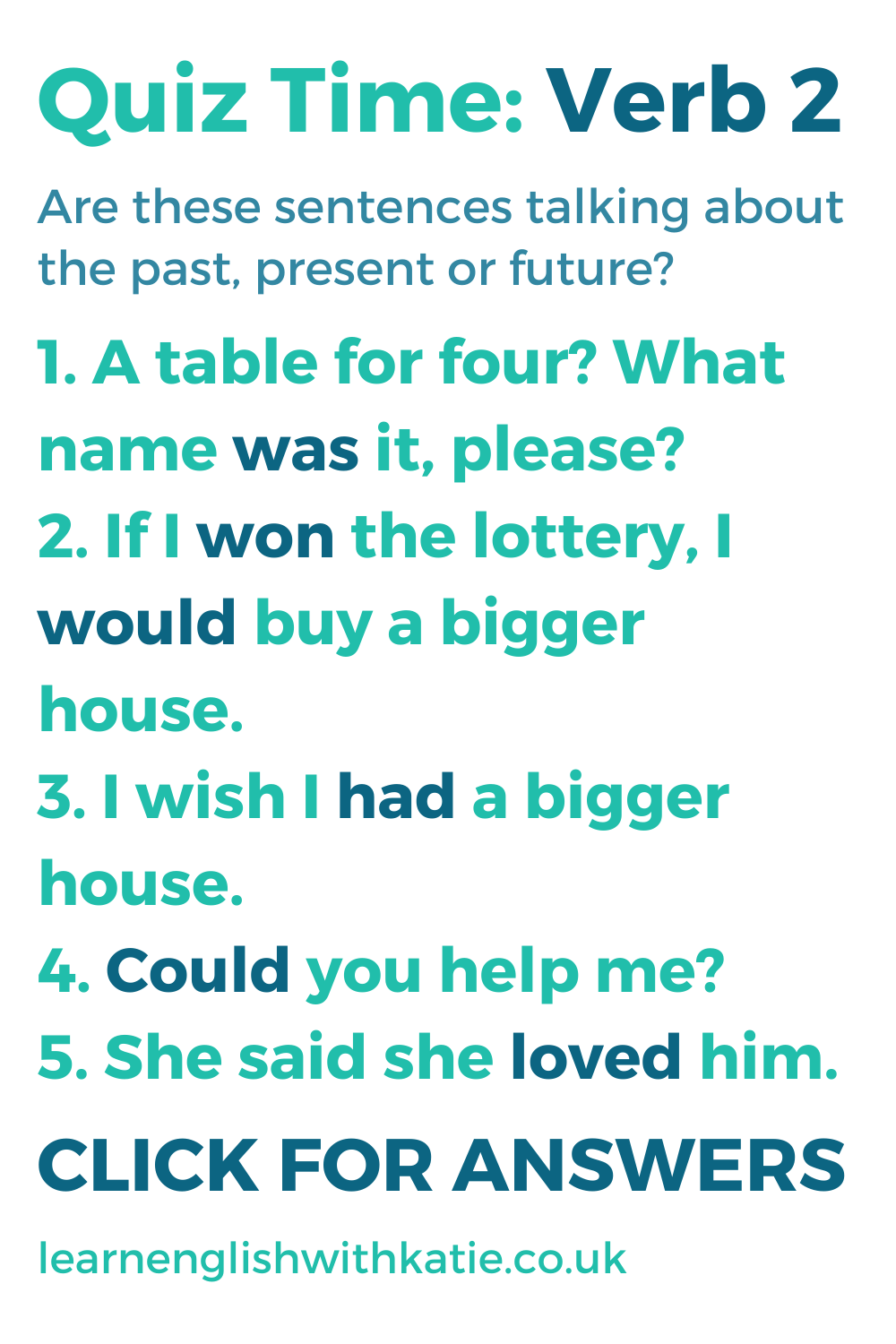|
Did you learn your irregular verbs from a list - beat, beat, beaten; come, came, come and so on? How well do you understand what the three forms mean and how to use them? This post is about the second form. “But that’s easy!” I hear you say. “It’s for the past!” That’s mostly true but not completely. Keep reading to learn why. First of all, let me explain that I usually refer to verb 1, verb 2 and verb 3 (rather than infinitive, past simple and past participle). I think it’s easier for you to remember these names but also the names can actually cause confusion sometimes. See this post about the different uses of verb 1. Secondly, don't forget that we can talk about the past using other tenses. For example: It was raining this morning. (past continuous) I’ve been to France a few times. (present perfect) The past simple is mostly used for past time. For example: 1. I was hungry when I got home. 2. He could speak two languages when he was five years old. 3. I had a party on my birthday. 4. Who won the match? 5. They loved it. These sentences are describing past actions and situations. However, this is not always the case. Look at these sentences and ask yourself whether they are describing the past, present or future. 1. A table for four? What name was it, please? 2. If I won the lottery, I would buy a bigger house. 3. I wish I had a bigger house. 4. Could you help me? 5. She said she loved him. Michael Lewis, in his book “The English Verb”, says that a better way to understand verb 2 is to say that it describes something remote. (“Remote” means “far away”.) When we talk about past events, they are remote in time. Now let’s look at the sentences thinking about “remoteness”. 1. A table for four? What name was it, please? We are talking about now but we sometimes use verb 2 to sound more formal. Here it’s the relationship that’s remote because we are talking to somebody that we don’t know. “What’s your name?” sounds more friendly and less remote. 2. If I won the lottery, I would buy a bigger house. We are talking about the future but say “if I won” rather than “if I win” because we think the chance of winning is remote. A remote chance is a slight chance. 3. I wish I had a bigger house. If I had a bigger house, I could invite friends to stay. We understand an unspoken “but I don’t” from this sentence, which creates a distance or remoteness between the dream and reality. We are talking about now but we use verb 2 because it’s unreal, or remote from reality. 4. Could you help me? This is similar to number 1 because it sounds more formal. Maybe the relationship is distant. With close relationships, we use the present tense. Or maybe it’s like number 2 and we want to ask, “Is there a remote chance of you helping me?” Perhaps I know the other person but it’s a big favour to ask! I want help now or in the future, not the past. 5. She said she loved him. You might recognise this as reported speech. (Direct speech: she said, “I love you.”) Maybe we are reporting something that was said some time ago so it’s a remote time. Or maybe she still loves him now but the speaker is distancing himself. Perhaps he wants to say the information didn’t come from him or maybe he doesn’t even believe it’s true! So do you see that there is always a sense of distance or remoteness when we use verb 2: remote past time, remote relationships, a remote possibility or the speaker distancing himself from what he said. Further reading You might also like this post about when the present simple is not used for present time. This post will tell you more about the past simple. If you need help remembering irregular verbs, click below for a free PDF download. It's a list of all the irregular verbs organised into easy to learn groups.
0 Comments
Your comment will be posted after it is approved.
Leave a Reply. |
About the blogFollow the blog for mini lessons and tips on how to improve your English. Categories
All
Archives
July 2024
|

 RSS Feed
RSS Feed
